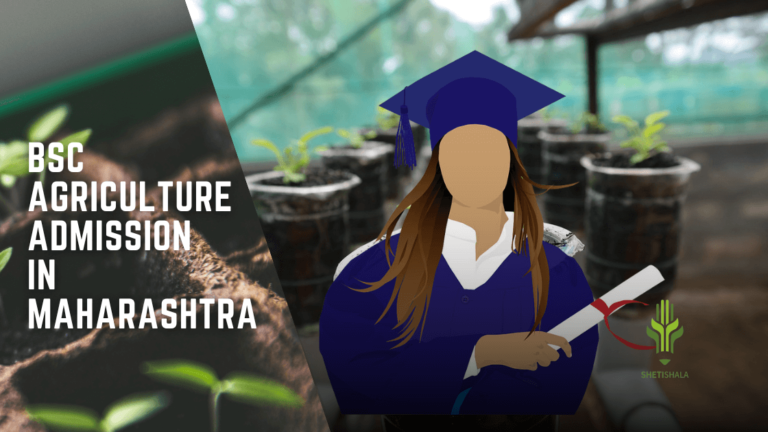Introduction
Agricultural education and training play a pivotal role in India’s agricultural sector, which supports the livelihoods of millions and contributes significantly to the nation’s economy. With diverse agro-climatic zones and varying farming practices across the country, the need for structured education and training programs is crucial to enhance productivity, sustainability, and resilience in agriculture. This blog explores the importance of agricultural education and training in India, examines the available resources, and discusses initiatives aimed at empowering farmers and agricultural professionals.

Importance of Agricultural Education and Training
Building Knowledge and Skills
Agricultural education equips individuals with the knowledge and skills necessary to succeed in farming and related fields. From basic agronomic practices to advanced techniques in precision farming and agribusiness management, education fosters a deep understanding of agricultural principles. Farmers who undergo formal or informal training are better equipped to make informed decisions, adopt modern technologies, and improve crop yields while conserving resources.
Promoting Innovation and Sustainability
Education in agriculture encourages innovation and the adoption of sustainable practices. As global challenges like climate change and food security intensify, trained professionals are essential for developing and implementing solutions. Innovations in organic farming, integrated pest management, and water-efficient irrigation techniques are outcomes of educated agricultural professionals contributing to sustainable agriculture.
Empowering Rural Communities
Agricultural education empowers rural communities by enhancing their socio-economic status. Farmers who receive training in crop diversification, value addition, and marketing strategies can access broader markets and improve their income. Additionally, education fosters entrepreneurship among rural youth, leading to the establishment of agribusinesses and allied enterprises that contribute to rural development.
Bridging the Urban-Rural Divide
Education and training in agriculture bridge the gap between urban and rural areas by promoting mutual understanding and collaboration. Urban dwellers gain insights into rural livelihoods and agricultural challenges, fostering appreciation for agriculture’s critical role in the economy. Conversely, rural communities benefit from exposure to urban innovations and market trends, enhancing their competitiveness in the agricultural sector.
Available Resources for Agricultural Education and Training
Agricultural Universities and Institutions
India boasts a network of agricultural universities and institutions dedicated to agricultural education, research, and extension. Institutions like the Indian Council of Agricultural Research (ICAR) and State Agricultural Universities (SAUs) offer undergraduate, postgraduate, and doctoral programs in various disciplines, including agronomy, horticulture, agricultural engineering, and animal sciences. These institutions serve as centers of excellence, producing skilled professionals and conducting research to address agricultural challenges.
Extension Services and Krishi Vigyan Kendras (KVKs)
Extension services, facilitated through KVKs and other outreach programs, play a vital role in disseminating agricultural knowledge and technologies to farmers. KVKs serve as knowledge hubs at the grassroots level, offering training programs, demonstrations, and workshops on best agricultural practices. They bridge the gap between research and field application, ensuring that farmers have access to timely information and practical solutions tailored to local conditions.
Government Initiatives and Schemes
The Government of India implements various initiatives and schemes to promote agricultural education and training across the country. Programs like the National Agricultural Higher Education Project (NAHEP) aim to enhance the quality of agricultural education and institutional capacity building. Additionally, schemes such as the Rashtriya Krishi Vikas Yojana (RKVY) support skill development, entrepreneurship, and infrastructure development in agriculture.
Private Sector and NGOs
The private sector and non-governmental organizations (NGOs) complement government efforts by offering specialized training programs and initiatives. Agribusiness firms, agricultural equipment manufacturers, and NGOs focusing on rural development collaborate to provide vocational training, capacity building, and skill enhancement opportunities for farmers and rural youth. These partnerships foster innovation and entrepreneurship in agriculture, promoting sustainable practices and market-oriented approaches.
Digital Platforms and E-Learning
Advancements in technology have revolutionized agricultural education through digital platforms and e-learning resources. Online courses, webinars, and mobile applications provide farmers and agricultural professionals with access to training modules on diverse topics such as soil health management, climate-smart agriculture, and market linkages. Digital platforms facilitate continuous learning and knowledge sharing, overcoming geographical barriers and reaching a broader audience across India.
Initiatives Promoting Agricultural Education and Training

Skill Development Initiatives
Skill development initiatives focus on enhancing practical skills and entrepreneurship among farmers and rural youth. Programs supported by the Ministry of Skill Development and Entrepreneurship, such as the Pradhan Mantri Kaushal Vikas Yojana (PMKVY), offer certification courses in agriculture and allied sectors. These initiatives aim to create a skilled workforce capable of driving agricultural productivity and innovation.
Farmer Field Schools (FFS)
FFS are participatory learning platforms where farmers engage in hands-on activities and demonstrations under the guidance of agricultural experts. These schools promote experiential learning and empower farmers to adopt best practices in crop management, pest control, and natural resource conservation. FFS have proven effective in building farmers’ capacity and fostering community-led knowledge exchange.
Agri-Entrepreneurship Development Programs
Agri-entrepreneurship development programs encourage farmers to venture into agribusiness and value addition activities. Institutions like the National Institute of Agricultural Extension Management (MANAGE) offer training in business planning, financial management, and marketing strategies tailored to agricultural enterprises. These programs enable farmers to add value to their produce, access higher-value markets, and diversify their income streams.
Research and Development (R&D) Initiatives
Research institutions collaborate with agricultural universities and industry partners to conduct applied research and develop innovative solutions. R&D initiatives focus on improving crop varieties, enhancing soil fertility, and mitigating climate risks. Public-private partnerships facilitate technology transfer and commercialization, ensuring that research findings benefit farmers and contribute to agricultural development.

Challenges and Way Forward
Addressing Regional Disparities
Despite significant progress, disparities in access to agricultural education and training persist across regions and socio-economic groups. Remote and marginalized communities often lack adequate infrastructure and resources for skill development. Addressing these disparities requires targeted interventions, including mobile extension services, scholarships, and capacity-building programs tailored to local needs.
Integrating Modern Technologies
Integrating modern technologies such as artificial intelligence (AI), remote sensing, and precision agriculture into educational curricula is essential for preparing future agricultural professionals. Hands-on training in digital farming tools and data analytics equips students and farmers with the skills needed to harness technology for sustainable agriculture and resource management.
Strengthening Public-Private Partnerships
Enhancing collaboration between academia, industry, and government is crucial for advancing agricultural education and training. Public-private partnerships can facilitate resource mobilization, knowledge exchange, and technology diffusion across the agricultural value chain. Joint initiatives in curriculum development, research funding, and infrastructure development promote innovation and entrepreneurship in agriculture.
Promoting Lifelong Learning
Promoting lifelong learning among farmers and agricultural professionals is vital in a dynamic agricultural landscape. Continuous training and capacity-building programs enable individuals to adapt to evolving challenges, adopt new technologies, and enhance productivity. Extension services, digital platforms, and community-based learning initiatives facilitate ongoing education and knowledge sharing among stakeholders.

Conclusion
Agricultural education and training are instrumental in transforming India’s agricultural sector, empowering farmers, enhancing productivity, and fostering sustainability. By investing in educational institutions, extension services, and skill development programs, India can build a skilled workforce capable of addressing current challenges and seizing opportunities in agriculture. Initiatives that promote innovation, entrepreneurship, and digital literacy are essential for driving agricultural growth and ensuring food security in a changing climate. By leveraging available resources and fostering partnerships, India can strengthen its agricultural education system and empower stakeholders to lead the sector towards prosperity and resilience.
References
- Ministry of Agriculture and Farmers Welfare, Government of India.
- Indian Council of Agricultural Research (ICAR).
- State Agricultural Universities (SAUs).
- Krishi Vigyan Kendras (KVKs).
- National Agricultural Higher Education Project (NAHEP).
- Rashtriya Krishi Vikas Yojana (RKVY).
- Pradhan Mantri Kaushal Vikas Yojana (PMKVY).
- National Institute of Agricultural Extension Management (MANAGE).
- Digital Agriculture initiatives and platforms.
- Farmer Field Schools (FFS) and Agri-Entrepreneurship Development Programs.




